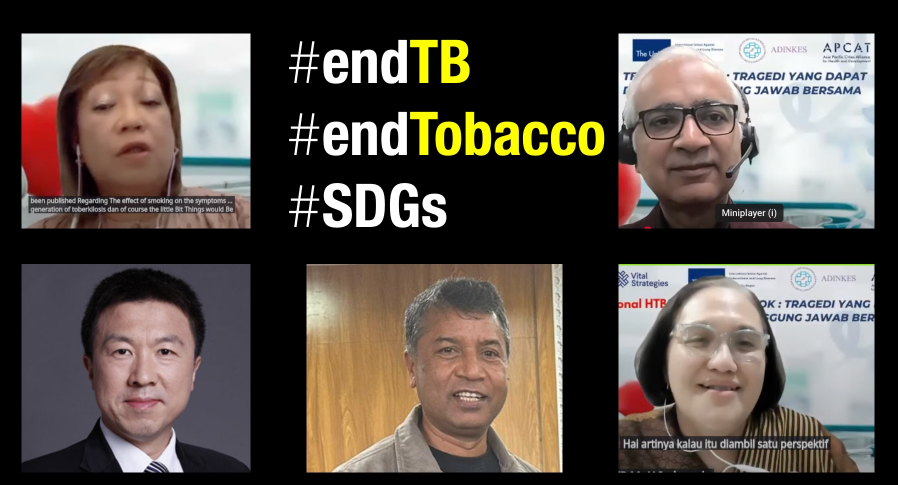No SDGs Without Ending TB and Tobacco, Experts Warn
As the world races against time to achieve the Sustainable Development Goals (SDGs) by 2030, global health experts warn that preventable epidemics like tuberculosis (TB) and tobacco-related diseases remain major threats. They call for urgent, integrated action to address these twin epidemics, which not only claim millions of lives annually but also strain economies worldwide.
In 2023 alone, TB caused 1.25 million deaths while tobacco use claimed over 8 million lives, despite being entirely preventable. Ahead of World No Tobacco Day 2025 and the World Conference on Tobacco Control, leading experts are sounding the alarm on the deadly link between TB and tobacco, highlighting how addressing them together could accelerate progress towards the SDGs.
Dr Tara Singh Bam, Asia Pacific Director for Tobacco Control at Vital Strategies and a key advocate for TB and tobacco control, emphasized the need for results-oriented political leadership. He called for integrating smoking cessation services into TB care and strengthening legislation to drive sustainable action. “Passive smoking can also increase the risk of TB, especially by impairing lung function and weakening the immune system,” he added.
Dr Vineet Bhatia, Regional Advisor for TB at the World Health Organization (WHO) Southeast Asia, reiterated the strong connection between tobacco and TB. “Tobacco smoking is a major determinant of TB. It impairs the immune system, making it easier for TB bacteria to infect the lungs,” he said. Dr Bhatia stressed that eliminating tobacco could reduce TB rates by up to 20%.
Supporting this view, Dr Gan Quan, who has contributed significantly to TB and tobacco control, highlighted that smoking makes it harder to diagnose and treat TB, increases the severity of illness, and raises the risk of recurrence and death. “Tobacco is not just a health issue, it’s an economic one too, costing the global economy US$ 1.4 trillion annually,” he noted.
In addition, Dr Elizabeth Cadena, President of The Union Asia Pacific, warned that while tobacco use is declining worldwide, the Western Pacific region — home to high TB burden countries — is witnessing the slowest decline. She also highlighted the link between tobacco smoking and drug-resistant TB.
Country-specific data paints an even grimmer picture. In Indonesia, tobacco smoking is now the leading risk factor for TB, surpassing even undernutrition. According to Dr Bhatia, “One in three TB cases in Indonesia are due to tobacco use.” Dr Gan Quan added that studies show up to 96% of male TB patients in Indonesia smoke, emphasizing the urgent need for integrated interventions.
The experts also linked tobacco use to antimicrobial resistance. Dr Bhatia shared findings from a WHO mission in Indonesia revealing that extensive lung damage from smoking contributed to patients being placed on longer, less effective drug-resistant TB treatment regimens.
Experts stress that science-backed interventions exist. Screening high-burden populations using molecular testing, providing same-day treatment, preventing TB through better nutrition, smoking cessation, and integrating TB and tobacco control programs are all proven strategies.
Dr Tiffany Tiara Pakasi, Head of Indonesia’s National TB Programme, emphasized the importance of linking TB and tobacco control efforts, saying this integration would yield better outcomes for people affected by both epidemics.
With only 67 months left to achieve the SDGs, the call from global health leaders is clear: ending TB and tobacco must be prioritized to protect lives and ensure sustainable development.
“It is high time accelerated action becomes a reality,” urged Dr Bhatia, echoing the sentiments of other health leaders.



